Home

PCOS & PCOD

Is Ghee Good for PCOS: The Ultimate Guide to Benefits and Ways to Consume
In this Article
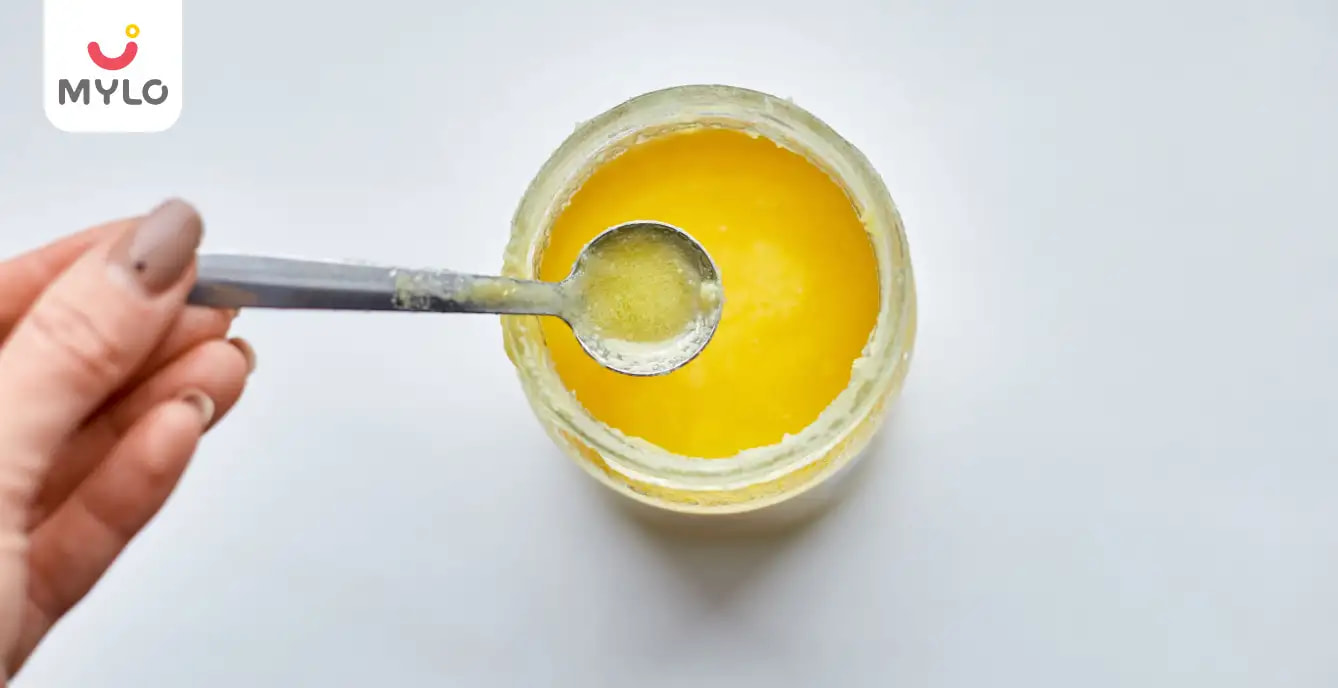
PCOS & PCOD
Is Ghee Good for PCOS: The Ultimate Guide to Benefits and Ways to Consume
Updated on 22 September 2023



Medically Reviewed by
Dr. Shruti Tanwar
C-section & gynae problems - MBBS| MS (OBS & Gynae)
View Profile

In the quest for managing Polycystic Ovary Syndrome (PCOS) and promoting overall well-being, many women have turned to natural remedies and dietary changes. One such superfood that has gained popularity is ghee. But is ghee good for PCOS?
In this ultimate guide, we will explore the benefits of ghee for PCOS and delve into various ways to incorporate it into your diet for maximum effectiveness. So, let's dive in and uncover the truth about ghee and its potential impact on PCOS management.
What is the link between ghee and PCOS?
Polycystic Ovary Syndrome (PCOS) is a hormonal disorder that affects many women worldwide. It is characterized by an imbalance of reproductive hormones, which can lead to various symptoms such as irregular periods, weight gain, acne, and fertility issues. Many women with PCOS often wonder if certain dietary changes can help manage their symptoms, and one such question is whether ghee is good for PCOS.
Ghee, also known as clarified butter, has been used in traditional Ayurvedic medicine for centuries. It is a staple in Indian cuisine and is known for its rich flavor and numerous health benefits. Ghee is made by simmering butter until the water content evaporates, leaving behind a golden, pure fat that is lactose-free and often well-tolerated by those with lactose intolerance.
You may also like : PCOS Acne: The Ultimate Guide to Causes, Treatment and Management
Should you consume ghee on empty stomach for PCOS?
There is a popular belief that consuming ghee on an empty stomach can have certain benefits for those with PCOS. However, there is limited scientific evidence to support this claim. While ghee is a source of healthy fats and can provide sustained energy, it is important to consider individual dietary needs and preferences. Some people may find that consuming ghee on an empty stomach helps them feel fuller for longer and may help regulate blood sugar levels. However, others may find that consuming ghee on an empty stomach causes digestive discomfort.
It is always best to listen to your body and consult with a healthcare professional or registered dietitian before making any significant dietary changes, especially if you have PCOS or any other health condition. They can provide personalized advice based on your individual needs and goals.
You may also like : PCOS Self-Care: How to Nurture Your Body and Mind
How is ghee good for PCOS?
Ghee and PCOS can be a great match as it can offer several potential benefits for those with PCOS including:
1. Anti-inflammatory
Ghee is a rich source of healthy fats, including omega-3 fatty acids, which have been shown to have anti-inflammatory properties. Inflammation is believed to play a role in the development and progression of PCOS, so consuming anti-inflammatory foods like ghee may help reduce symptoms.
2. Nutrient absorption
Ghee is rich in fat-soluble vitamins such as vitamin A, D, E, and K. These vitamins are crucial for various bodily functions, including reproductive health. Consuming ghee can enhance the absorption of these vitamins, ensuring that your body receives the nutrients it needs to support PCOS management.
3. Improved Insulin Sensitivity
PCOS is often associated with insulin resistance, which can lead to weight gain and difficulty in managing blood sugar levels. Ghee contains a compound called butyrate, which may help regulate insulin levels and improve insulin sensitivity, which are both important factors in managing PCOS symptoms.
4. Digestive Health
Ghee acts as a lubricant for the digestive system, promoting healthy digestion and reducing digestive issues commonly experienced by women with PCOS. It helps in maintaining a healthy gut environment, improving nutrient absorption, and reducing bloating and constipation.
5. Hormonal Balance
Ghee contains essential fatty acids that aid in balancing hormones. For women with PCOS, hormonal imbalances are common, leading to various symptoms. Regular consumption of ghee can help regulate hormone levels, promoting overall reproductive health and reducing PCOS symptoms.
You may also like : Dates for PCOS: How to Harness their Health Benefits
Ways and tips to consume ghee for PCOS
We understand that consuming ghee on empty stomach for PCOS may not be everyone’s cup of tea, so here are some ways to consume ghee for maximum benefits in PCOS:
1. In cooking
One of the easiest ways to incorporate ghee into your diet is by using it for cooking. Replace vegetable oils or butter with ghee when sautéing vegetables, frying eggs, or baking. Ghee has a high smoke point, which means it can withstand high temperatures without breaking down or creating harmful byproducts.
2. In bulletproof coffee
Bulletproof coffee is a popular beverage among those following a ketogenic or low-carb diet. To make bulletproof coffee, simply brew your favorite coffee and blend it with a tablespoon of ghee and a tablespoon of coconut oil or MCT oil. This creamy and satisfying drink can provide a boost of energy and healthy fats to start your day.
3. As a spread
Ghee can be used as a delicious and nutritious spread on toast, crackers, or rice cakes. Its rich and creamy texture adds a flavorful touch to any snack or meal.
4. In Ayurvedic recipes
Ghee is a staple ingredient in Ayurvedic cooking and is often used to enhance the flavor and medicinal properties of herbs and spices. Incorporate ghee into traditional Ayurvedic recipes such as kitchari, a nourishing rice and lentil dish, or golden milk, a soothing beverage made with turmeric and warm spices.
5. In smoothies and shakes
Add a tablespoon of ghee to your favorite smoothie or protein shake for an extra dose of healthy fats. The creamy texture of ghee blends well with fruits, vegetables, and protein powders, making it a versatile addition to your daily smoothie routine.
The Bottomline
In answer to the initial question, is ghee good for PCOS, it is important to understand that while ghee offers potential benefits for those with PCOS, everyone's dietary needs and preferences are unique. It is always best to listen to your body and consult with a healthcare professional or registered dietitian before making any significant dietary changes. If you decide to incorporate ghee into your diet, choose high-quality, organic ghee from a trusted source. Moderation is key, as ghee is high in calories and fat. Aim to consume ghee as part of a balanced diet that includes a variety of nutrient-dense foods.
References
1. Rajaeieh G, Marasi M, Shahshahan Z, Hassanbeigi F, Safavi SM. (2014). The Relationship between Intake of Dairy Products and Polycystic Ovary Syndrome in Women Who Referred to Isfahan University of Medical Science Clinics in 2013. Int J Prev Med.
2. Rasquin LI, Anastasopoulou C, Mayrin JV. (2022). Polycystic Ovarian Disease.





Medically Reviewed by
Dr. Shruti Tanwar
C-section & gynae problems - MBBS| MS (OBS & Gynae)
View Profile


Written by
Anandita Sharma
Drawing on more than a decade of expertise in administration, Anandita Sharma currently serves as a content operations e
Read MoreGet baby's diet chart, and growth tips

Related Articles
Related Questions
Hello frnds..still no pain...doctor said head fix nhi hua hai..bt vagina me pain hai aur back pain bhi... anyone having same issues??

Kon kon c chije aisi hai jo pregnancy mei gas acidity jalan karti hain... Koi btayega plz bcz mujhe aksar khane ke baad hi samagh aata hai ki is chij se gas acidity jalan ho gyi hai. Please share your knowledge

I am 13 week pregnancy. Anyone having Storione-xt tablet. It better to have morning or night ???

Hlo to be moms....i hv a query...in my 9.5 wk i feel body joint pain like in ankle, knee, wrist, shoulder, toes....pain intensity is high...i cnt sleep....what should i do pls help....cn i cosult my doc.

Influenza and boostrix injection kisiko laga hai kya 8 month pregnancy me and q lagta hai ye plz reply me

RECENTLY PUBLISHED ARTICLES
our most recent articles
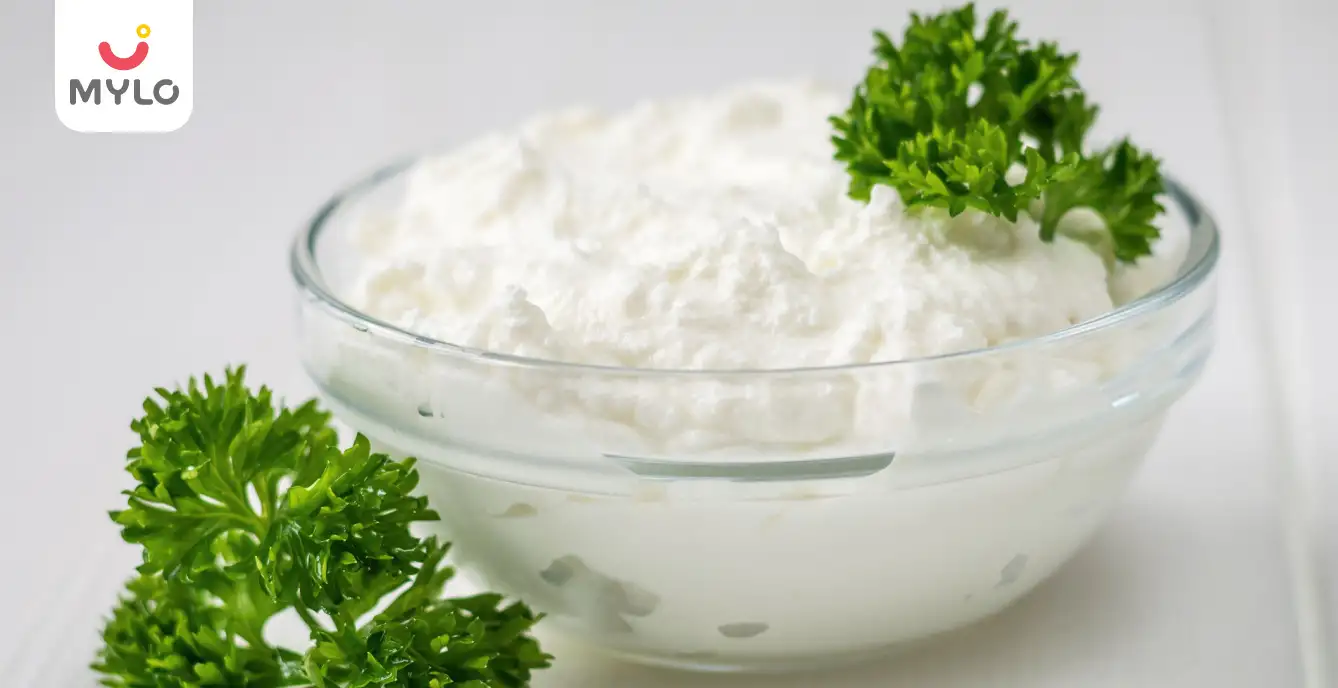
PCOS & PCOD
Is Curd Good for PCOS: The Ultimate Guide to Debunking Myths and Discovering Benefits
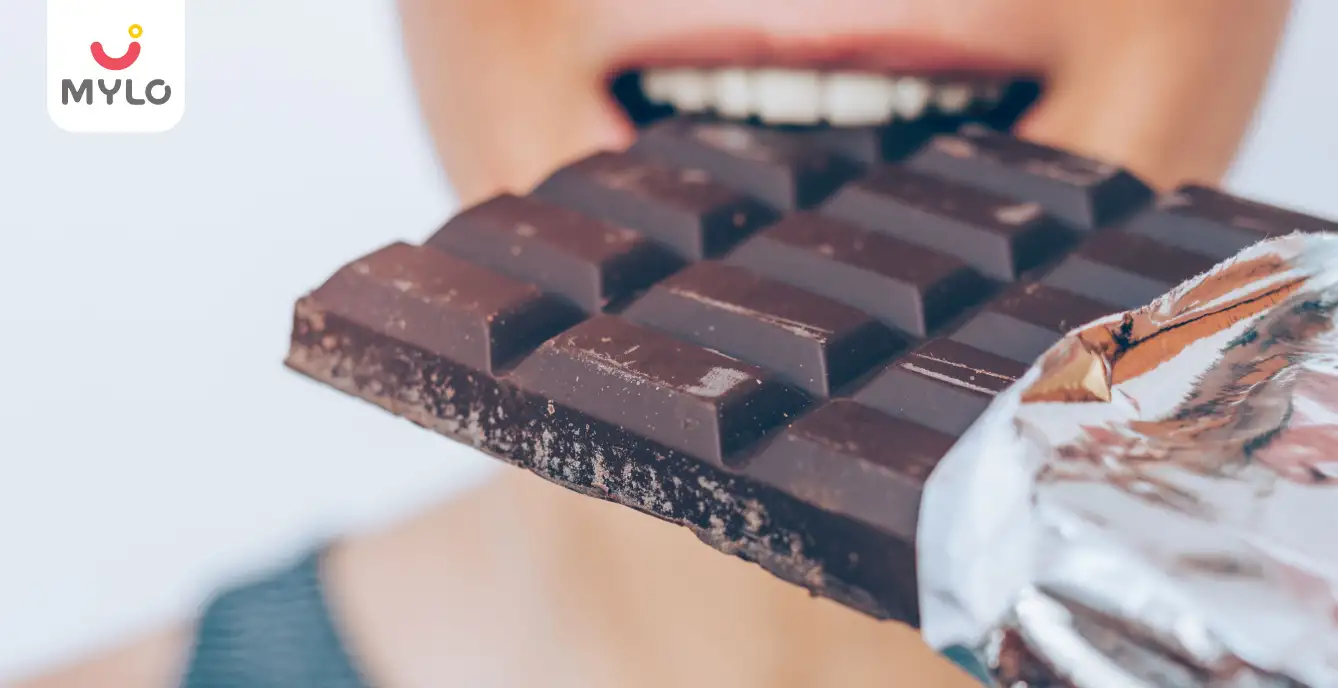
Diet & Nutrition
Dark Chocolate for PCOS: Unlocking the Potential of a Guilt-Free Indulgence
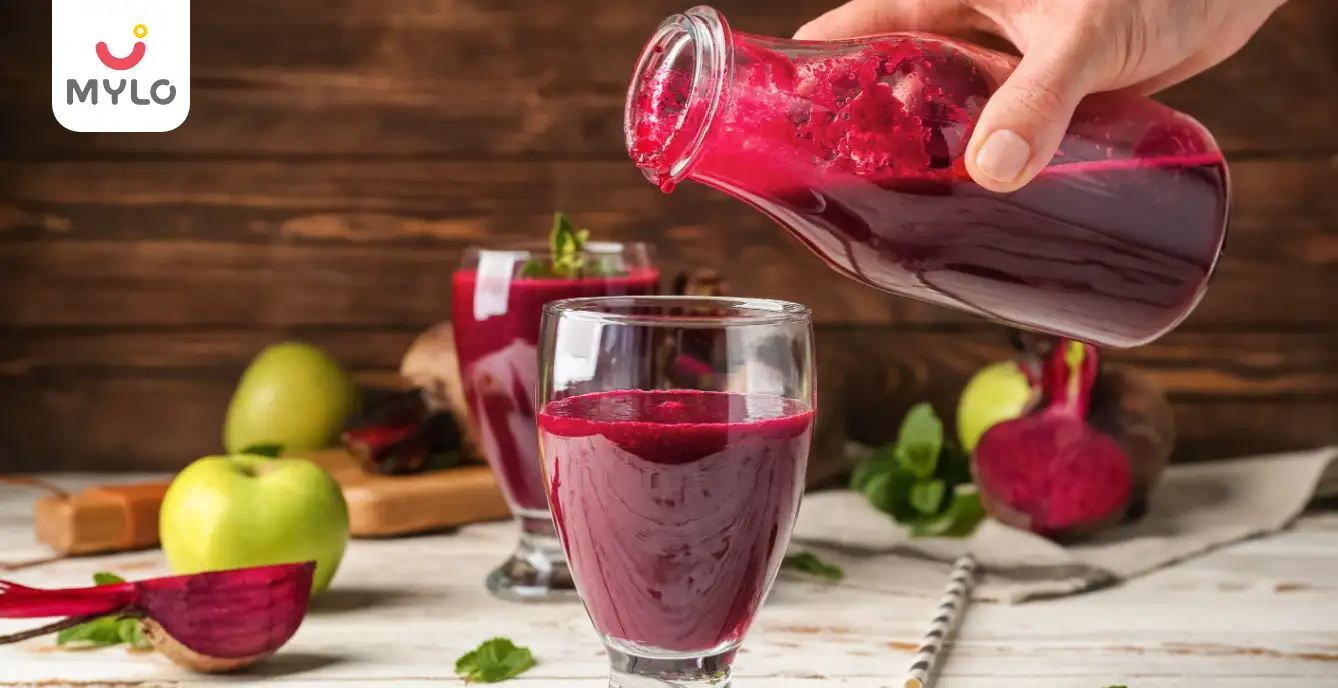
PCOS & PCOD
Beetroot for PCOS: Discovering a Natural Approach to Managing Symptoms
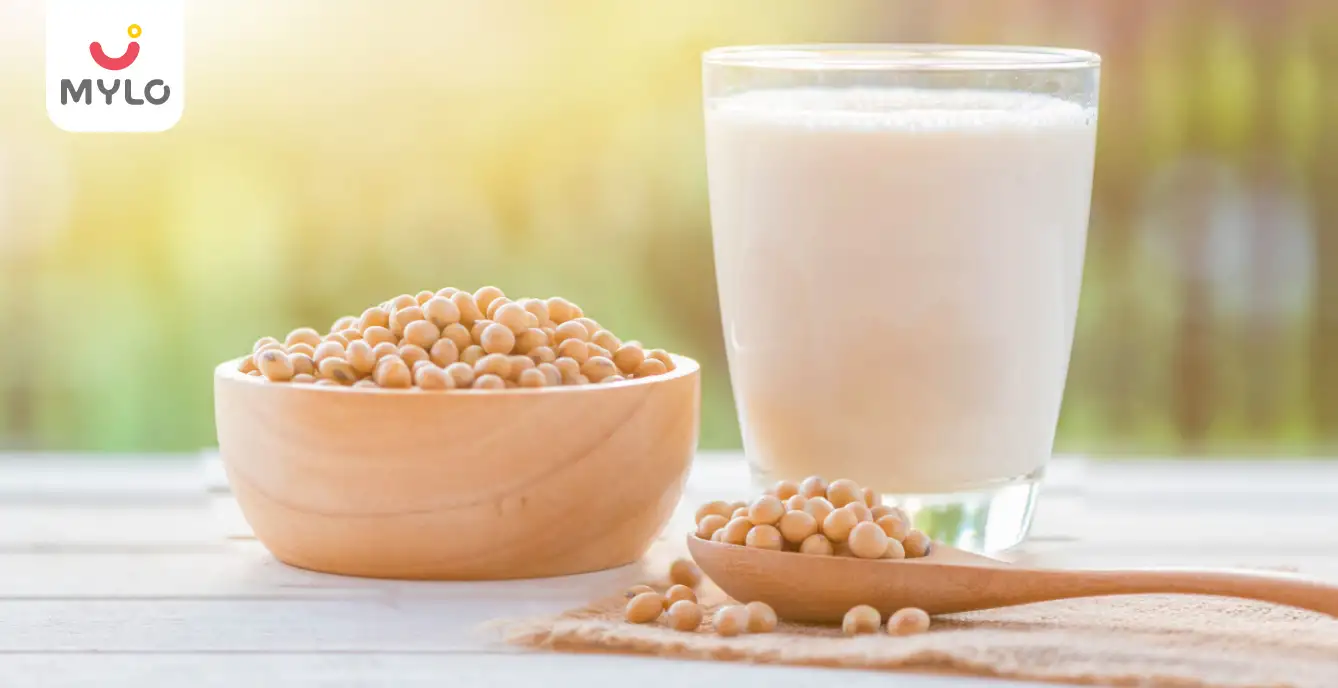
PCOS & PCOD
Soy for PCOS: Should You Eat it or Avoid It?
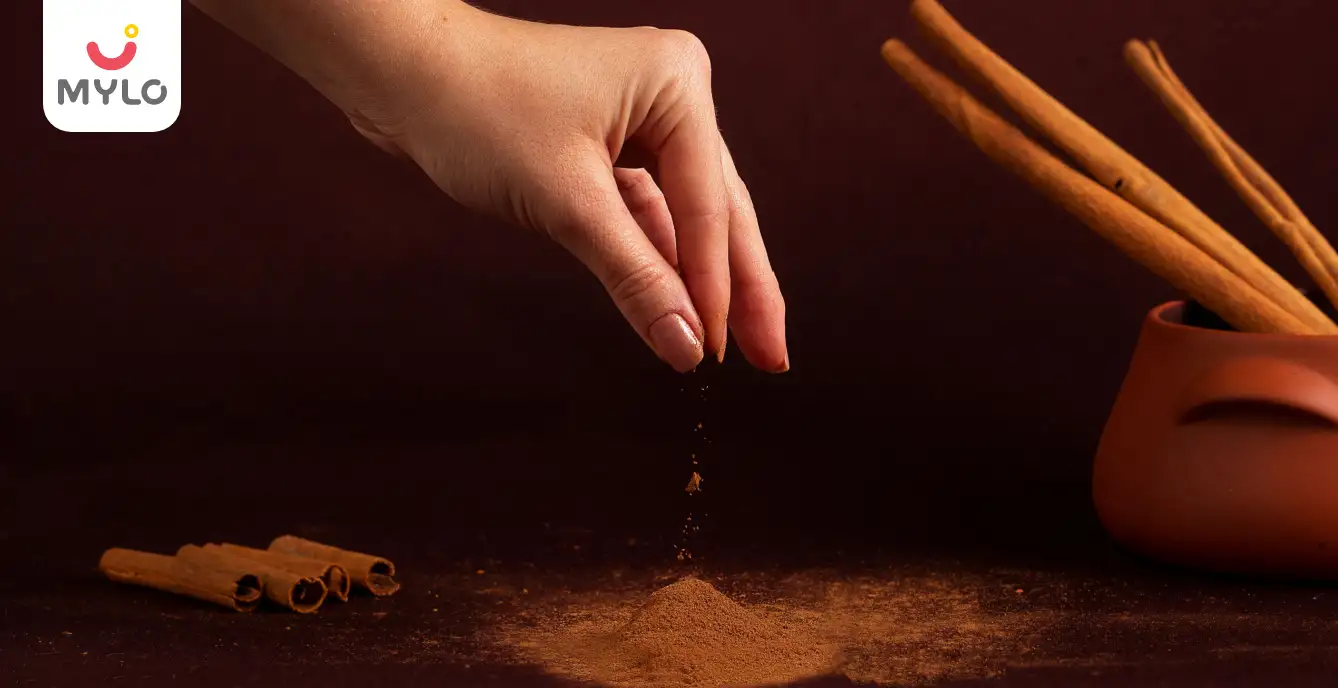
PCOS & PCOD
Cinnamon for PCOS: Discovering the Natural Support You've Been Missing

Motor Skills
When Do Babies Start Walking?
- The Ultimate Guide to 4th Month Pregnancy Symptoms
- Your Guide to 2 Months Pregnant Symptoms: What to Expect
- The Ultimate Balanced Diet Chart: Your Guide to Optimal Nutrition
- Mundan Ceremony: A New Parent's Guide to Customs, Traditions and Celebrations
- Dates for PCOS: How to Harness their Health Benefits
- Coconut Water for PCOS: Discovering the Natural Support You've Been Missing
- Everything You Need to Know About the Length of Vagina
- Herbs for Male Fertility: Exploring Herbal Solutions for Male Reproductive Health
- Is Banana Good for PCOS: A Comprehensive Guide to Understanding Their Relationship
- Flax Seeds for PCOS: How This Superfood Can Improve Symptoms
- Shankhpushpi: Discover the Health Benefits of This Ancient Herb
- Chamomile: The Ultimate Guide to Discovering its Medicinal Properties and Health Benefits
- Endometrial Thickness in Pregnancy: Your Guide to Understanding What is Normal
- Hypomenorrhea: When Your Period is Lighter Than Usual


AWARDS AND RECOGNITION

Mylo wins Forbes D2C Disruptor award

Mylo wins The Economic Times Promising Brands 2022
AS SEEN IN
















- Mylo Care: Effective and science-backed personal care and wellness solutions for a joyful you.
- Mylo Baby: Science-backed, gentle and effective personal care & hygiene range for your little one.
- Mylo Community: Trusted and empathetic community of 10mn+ parents and experts.
Product Categories
baby carrier | baby soap | baby wipes | stretch marks cream | baby cream | baby shampoo | baby massage oil | baby hair oil | stretch marks oil | baby body wash | baby powder | baby lotion | diaper rash cream | newborn diapers | teether | baby kajal | baby diapers | cloth diapers |




